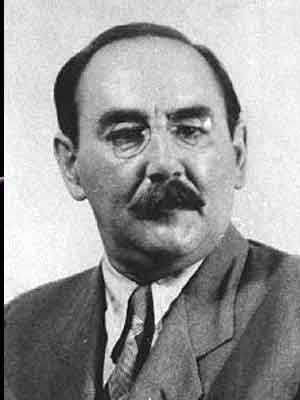1958 Imry Nagy Executed
On June 16th 1958 the Hungarian Communist regime executed Imry Nagy, the leader of the Hungarian revolution of 1956.
Imre Nagy was a Hungarian politician and the Prime Minister of Hungary during the 1956 Hungarian Revolution. He was a reformist leader who had opposed the Soviet-backed regime of Hungary and had advocated for democratic reforms and a more independent foreign policy. After the revolution was crushed by Soviet forces in November 1956, Nagy sought asylum in the Yugoslavian embassy in Budapest. However, he was later arrested by Soviet forces and was executed on June 16, 1958.
Nagy's execution was widely condemned by Western powers and by many Eastern European countries, who saw it as an example of Soviet repression and interference in the affairs of other countries.
Nagy's trial and execution were part of a wider crackdown on dissent in Hungary following the 1956 revolution. In the aftermath of the revolution, the Soviet Union installed a new government in Hungary, which was headed by Janos Kadar. Kadar was a loyal supporter of the Soviet Union, and his government was responsible for the persecution and imprisonment of many of the leaders of the 1956 revolution, including Nagy.
Nagy's trial was a sham, and he was accused of a range of charges, including treason and conspiracy against the Hungarian state. He was denied legal representation and was not allowed to defend himself against the charges. Nagy was found guilty and was sentenced to death, along with several of his supporters.
The United States and other Western countries imposed economic sanctions on the Soviet Union in response to Nagy's execution, and relations between the two superpowers deteriorated significantly in the years that followed.
The execution of Nagy also had significant implications for Hungary's relationship with the Soviet Union. The execution was seen as a warning to other Eastern European countries that any attempt to challenge Soviet authority would be met with brutal repression. The Soviet Union used the execution of Nagy as a way of consolidating its control over Hungary and other Eastern European countries, and it helped to cement the division between East and West in Europe.
 >
>